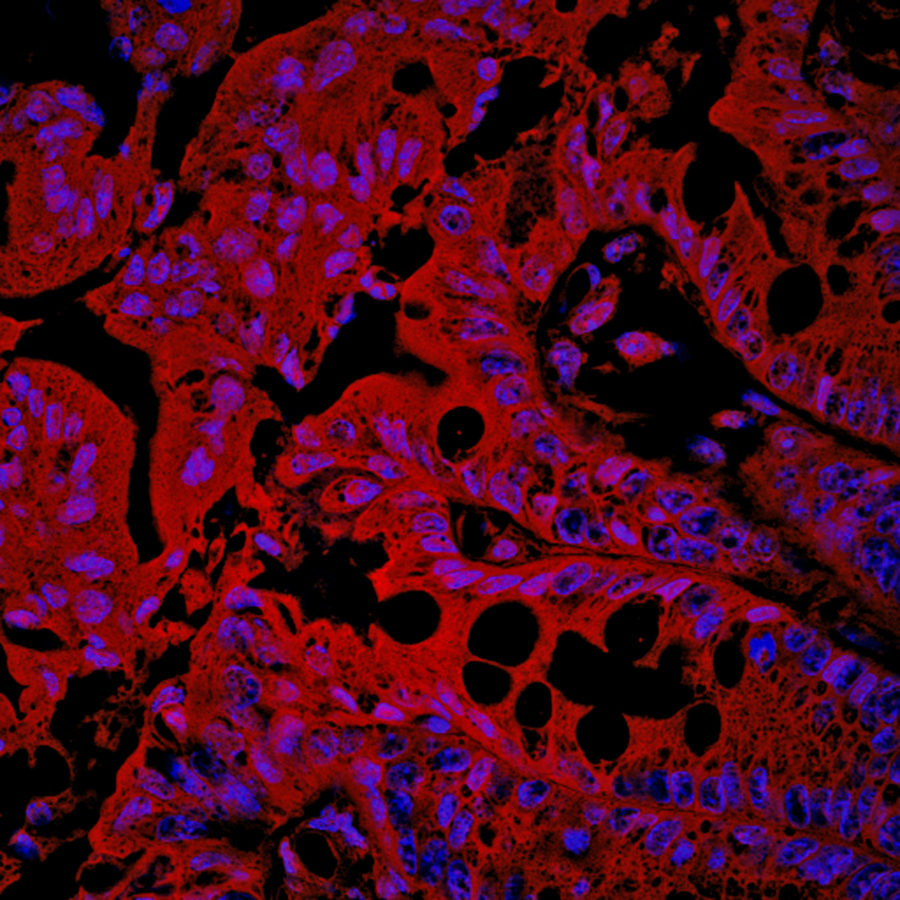Emerging Pathway for Predicting the Severity of Crohn’s Disease
Research By: Theresa Alenghat, VMD, PhD
Post Date: July 1, 2019 | Publish Date: Sept. 20, 2018

“This study suggests that the microbiome triggers epigenetic change that could make some individuals more prone to intestinal inflammation.”
—Theresa Alenghat, VMD, PhD
An epigenetic signature in patients’ intestinal epithelial cells may predict inflammation risk in Crohn’s disease, according to new research led by Theresa Alenghat, VMD, PhD, Division of Immunology.
The findings, published Sept. 20, 2018, in JCI Insights, provide more evidence of the close links between chronic inflammatory diseases and our intestinal microbiota.

“This study suggests that the microbiome triggers epigenetic change that could make some individuals more prone to intestinal inflammation,” Alenghat says. “Each person’s microbiome is driven by genetics as well as external environmental factors, such as food, where we live, pets, mom’s microbiome, etc.”
The research team studied mice and intestinal epithelial cells from newly diagnosed inflammatory bowel disease patients. They found strong correlations between S100A8 expression—a gene linked to the severity of Crohn’s disease—and levels of the histone H3-lysine 4 trimethylation (H3K4me3) found in microbiota-sensitive genes. These alterations in histone levels affected pathways involving immunoregulation, cell survival and signaling, and metabolism.
These previously unrecognized pathways may offer new molecular targets for IBD diagnosis and therapy. Next steps include developing intestinal organoids to further study these pathways in functional human tissue.
| Original title: | Microbiota-sensitive epigenetic signature predicts inflammation in Crohn’s disease |
| Published in: | JCI Insight |
| Publish date: | Sept. 20, 2018 |
Research By








